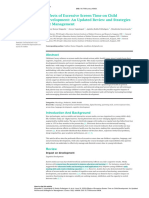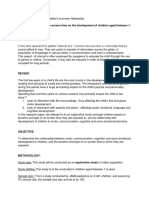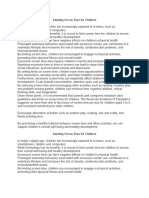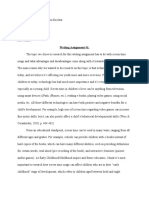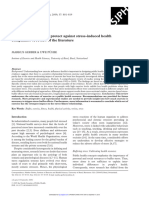0% found this document useful (0 votes)
13 views31 pagesIntro Merged
This document outlines a descriptive cross-sectional study on the effects of screen time among children, focusing on health, education, and sleep disturbances. Conducted among parents of children aged 2-12 at Sri Lakshmi Narayana Institute of Medical Sciences, the study aims to understand the impact of screen time and includes a detailed methodology, results, and discussion on the implications of excessive screen exposure. The findings emphasize the need for monitoring screen time to mitigate negative effects on children's development and well-being.
Uploaded by
DharshanaCopyright
© © All Rights Reserved
We take content rights seriously. If you suspect this is your content, claim it here.
Available Formats
Download as PDF, TXT or read online on Scribd
0% found this document useful (0 votes)
13 views31 pagesIntro Merged
This document outlines a descriptive cross-sectional study on the effects of screen time among children, focusing on health, education, and sleep disturbances. Conducted among parents of children aged 2-12 at Sri Lakshmi Narayana Institute of Medical Sciences, the study aims to understand the impact of screen time and includes a detailed methodology, results, and discussion on the implications of excessive screen exposure. The findings emphasize the need for monitoring screen time to mitigate negative effects on children's development and well-being.
Uploaded by
DharshanaCopyright
© © All Rights Reserved
We take content rights seriously. If you suspect this is your content, claim it here.
Available Formats
Download as PDF, TXT or read online on Scribd
/ 31




